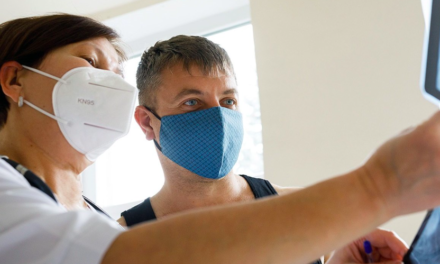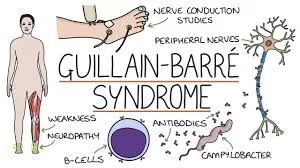
Since its first case was reported on 14 February 2020, the African Region has experienced four distinct waves of COVID-19. Throughout each of these, WHO has continued to work with countries to scale up pathogen genomic surveillance to enable the effective detection and response to SARS-CoV-2 variants, through sustainable investments in infrastructure and human resources.
To reflect on and further this work, the WHO Regional Office for Africa (AFRO) convened a meeting of COVID-19 epidemiology focal points from ministries of health of selected high-risk countries in Brazzaville (Republic of the Congo) which took place between 10 to 13 August 2022. The aim was to discuss initiatives aimed at improving the quality and effectiveness of COVID-19 surveillance, including genomic surveillance. The Regional Virologist at WHO AFRO set the scene:
“Currently, 40 out of the 47 Member States (85%) in the African Region have in-country capabilities for genomic sequencing and 46 Member States (98%) are sharing their genetic sequence data through a publicly accessible database. The Region has established a coordinated mechanism to sustain and strengthen these gains and has set up three centres of excellence for genomic surveillance, developed standardized guidance documents, offered capacity building for Ministries of Health’s personnel and set up laboratory infrastructure for routine pathogen genomic surveillance, including wastewater surveillance.”
– Dr Nicksy Gumede-Moeletsi, Regional Virologist, WHO/AFRO
Here are some highlights from stories shared by countries in the meeting.
Ethiopia
Genomic sequencing capabilities were established during the pandemic and the data generated continues to support public health decision-making for both COVID-19 and other disease priority areas, such as antimicrobial resistance using a One Health approach. Despite promising gains however, Ethiopia still needs to address various challenges to improve capacity for and quality of sequencing, among which: the small number of functioning laboratories, shortage of laboratory supplies, and the lack of sufficient bioinformatics capacities to analyze and interpret the sequencing data for timely action.
“Genomic surveillance has played an important role in informing the response to COVID-19 in Ethiopia. A five- year National Strategy to guide the coordination and implementation of surveillance activities for SARS-CoV-2 and other pathogens between 2022 and 2026 is being developed.”
– Mr. Kebede Shitaye, Epidemiologist/Public Health Specialist, WHO Country Office for Ethiopia
Democratic Republic of Congo
Leveraging the genomic sequencing capacities built during the Ebola outbreak in 2018, the Democratic Republic of the Congo swiftly triggered sequencing for SARS-CoV-2 after the first case was reported. Since then, the country’s Regional Reference Laboratory has also been sequencing SARS-Cov-2 samples from four countries (Chad, Cameroon, the Central African Republic and the Republic of the Congo), with support from WHO and other partners. This sequencing capacity is now being used for other national priority diseases such as monkeypox, polio, measles, malaria, cholera, and yersinia pestis.
“The Democratic Republic of Congo was one of the first countries in the world to share sequences for SARS-CoV-2 on the Global Initiative on Sharing Avian Influenza Data (GISAID). The first sequence was publicly published on 25 March 2020, two weeks after the first case was reported. We are committed to strengthening existing sequencing capabilities and introducing genomic environmental monitoring activities in the near future.”
– Dr Justus Nsio, Epidemiologist, Ministry of Health, Democratic Republic of the Congo
Nigeria
Nigeria’s genomic sequencing capacities has been built across diverse public and private sectors institutions, including the National Public Health Institute and academic and research centres, to help inform the response to COVID-19. Since the beginning of the pandemic, Nigeria has shared over 7,000 sequences on the Global Initiative on Sharing Avian Influenza Data (GISAID).
“The sequencing capability built during the COVID-19 pandemic presents an opportunity for us to strengthen pathogen genomic surveillance for other priority pathogens in the country. We are committed to strengthening coordination, human capacities and infrastructure for genomic surveillance.”
– Dr Abubakar Jafiya, Epidemiologist, Nigeria Centre for Disease Control, Nigeria
South Africa
South Africa has built world-class capacities for quality and timely genomic surveillance of SARS-CoV-2 and other pathogens with pandemic and epidemic potential, exemplified by the establishment in May 2020 of the Network for Genomic Surveillance in South Africa, two months after the report of the first COVID-19 case. To sustain and strengthen the gains made, the country is committed to mobilize domestic resources, strengthen the workforce and improve access to tools for pathogen sequencing in South Africa and other African countries.
“Through a robust collaborative mechanism, South Africa has sequenced and shared more than 44,700 SARS-CoV-2 samples representative of all regions and ages on a publicly accessible database. We have built significant pathogen surveillance capacity for SARS-Cov-2 and other pathogens, and have integrated genomic surveillance into the broader public health surveillance system.”
– Dr Patrick Devanand, National Professional Officer, Emergency Preparedness and Response, WHO Country Office for South Africa
Outputs from the meeting and reflections from countries on the role of genomic surveillance during the COVID-19 pandemic and other public health emergencies will enable the Region to plan effectively and integrate pathogen surveillance into the broader public health architecture. In line with the recently launched Global Genomic Surveillance Strategy for Pathogens with Pandemic and Epidemic Potential 2022–2032, AFRO launched its Transforming African Surveillance Systems flagship project, which aims to enhance surveillance through strengthened pathogen genomic sequencing and will integrate conclusions and lessons learned from the August meeting.












